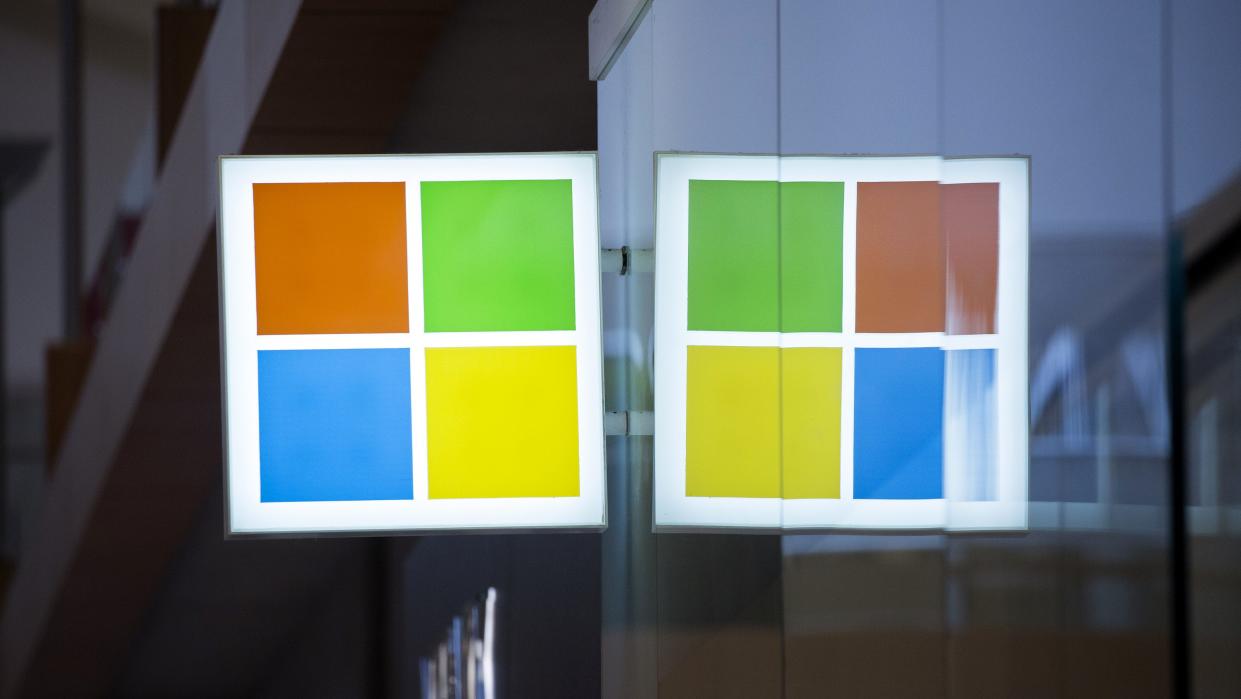Microsoft settles with European cloud trade body over antitrust complaints

Microsoft has reached an agreement with Cloud Infrastructure Services Providers in Europe (CISPE), nearly two years after the European not-for-profit trade association filed an antitrust complaint with the European Commission (EC) alleging that Microsoft was using its market dominance in the business software realm to tether customers to its Azure cloud.
Settlement discussions kicked off in April last year as Microsoft sought to keep regulators at bay, though neither party would reveal what the proposed changes to the status quo were. Some 15 months on, we can now confirm what's happening.
The core issue relates to a 2019 licensing change whereby Microsoft made it more expensive to run Microsoft’s enterprise software on rival cloud services.
The deal reached Wednesday includes a memorandum of understanding signed by CISPE members and Microsoft, whereby Microsoft commits to make changes to address CISPE's complaints. This includes a collaboration between all the parties to release an "enhanced version of Azure Stack HCI" for European cloud providers, which will offer features such as multi-session virtual desktop infrastructure based on Windows 11; free Extended Security Updates (ESU); and pay-as-you-go licensing for SQL Server.
"This is a significant victory for European cloud providers; CISPE has given Microsoft the benefit of the doubt and believes that this agreement will provide a level playing field for European cloud infrastructure service providers and their customers," Francisco Mingorance, CISPE secretary general, said in a statement issued to TechCrunch.
CISPE also said it would set up an independent European Cloud Observatory (ECO) "to monitor the development and ongoing evaluation" of the changes, which Microsoft has nine months to deliver on.
Microsoft president and vice chair Brad Smith said that the deal would help increase competition in the global cloud market.
"After working with CISPE and its European members for more than a year, I am pleased that we’ve not only resolved their concerns of the past, but also worked together to define a path forward that brings even more competition to the cloud computing market in Europe and beyond," Smith said in a statement issued to TechCrunch.
Notably, CISPE counts AWS as one of its members, sitting alongside smaller European cloud services providers such as Anexia and UpCloud. However, the agreement announced today excludes AWS, which wasn't part of the negotiations, according to CISPE. And of course, it doesn't include other major cloud providers such as Google or Alibaba, which aren't CISPE members anyway.
This seemingly goes against the "red lines" criteria that CISPE laid out last year, detailing the parameters within which it would negotiate with Microsoft -- these included a declaration that any deal reached should "apply to all cloud infrastructure providers operating in Europe," which this clearly doesn't given the omission of the other major cloud providers.
In a statement issued to TechCrunch, an AWS spokesperson pointed out that Microsoft selectively making these changes for some CISPE members shows that there are no technical barriers that prevent Microsoft from making its software more easily available to rival cloud providers, while Google Cloud head of platform Amit Zavery added that the deal struck today is tantamount to a pay-off, with reports indicating that Microsoft is paying as much as $22 million as part of the settlement. CISPE did confirm that Microsoft would be paying a "lump sum" to cover litigation and campaigning costs over the past couple of years, with CISPE withdrawing its antitrust complaint with the EC in return. However, CISPE wouldn't confirm the lump sum figure, which seems to contravene another of its "red line" stipulations it set out last year, which is that any settlement "must be transparent and clear, [and] open to scrutiny."
"Microsoft’s playbook of paying off complainants rather than addressing the substance of their complaint hurts businesses and shouldn’t fool anyone," Zavery said. "Many regulatory bodies have opened inquiries into Microsoft's licensing practices, and we are hopeful there will be remedies to protect the cloud market from Microsoft's anti-competitive behavior. We are exploring our options to continue to fight against Microsoft’s anti-competitive licensing in order to promote choice, innovation, and the growth of the digital economy in Europe."
Ryan Triplette, executive director for the Coalition for Fair Software (CFSL), said that the move merely benefits a handful of providers in Europe and underscores the need for the issue to be addressed globally.
"This settlement is Microsoft’s latest attempt to avoid regulatory scrutiny without addressing the underlying anticompetitive practices that impact millions of cloud customers worldwide," Triplette said. "Even after this agreement is in place, Microsoft will continue to use its unfair software licensing practices to limit choice, drive up costs, and lock in customers. A settlement with some smaller European providers that excludes the vast majority of customers and cloud providers does nothing to address Microsoft’s global anti-competitive behavior."

 Yahoo News
Yahoo News 
